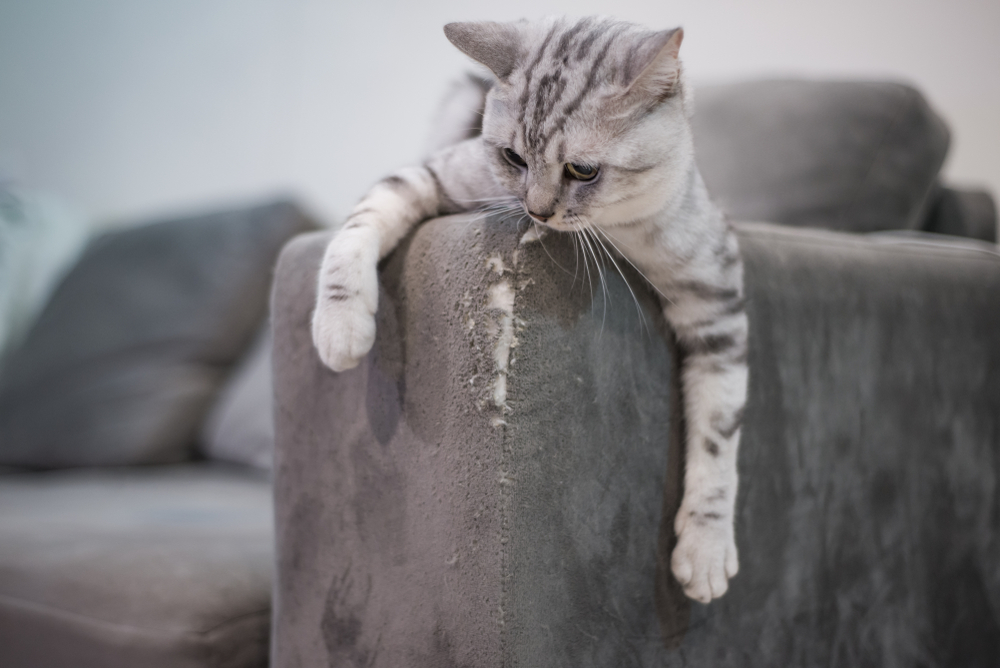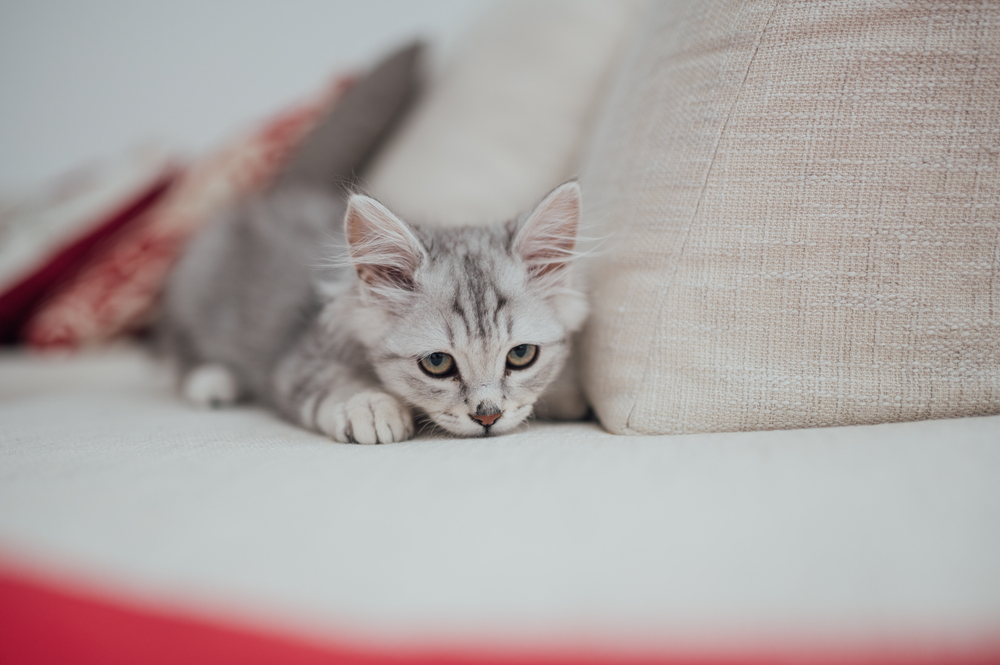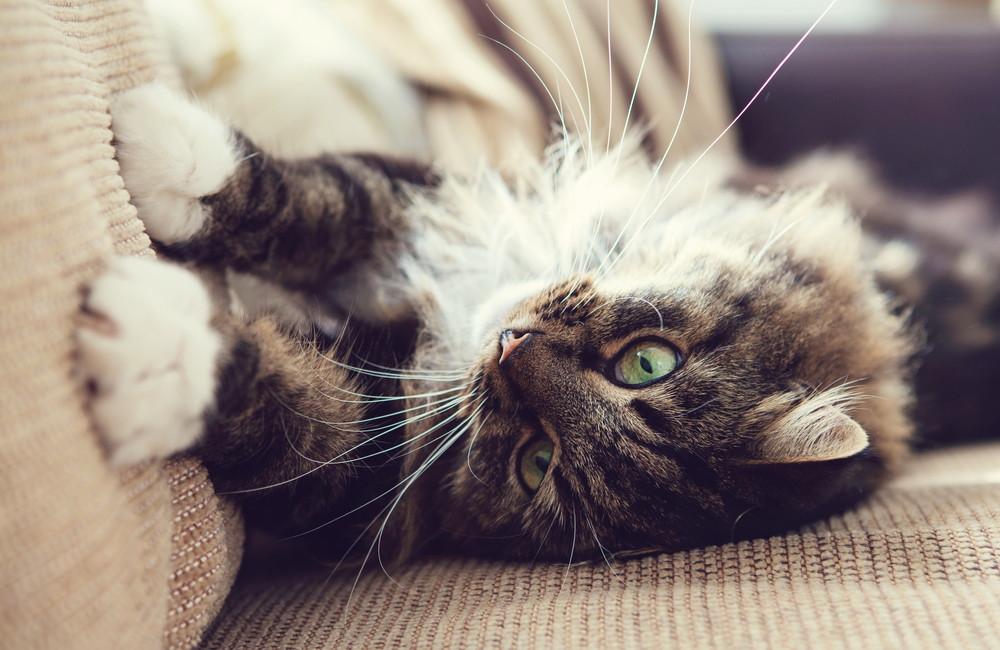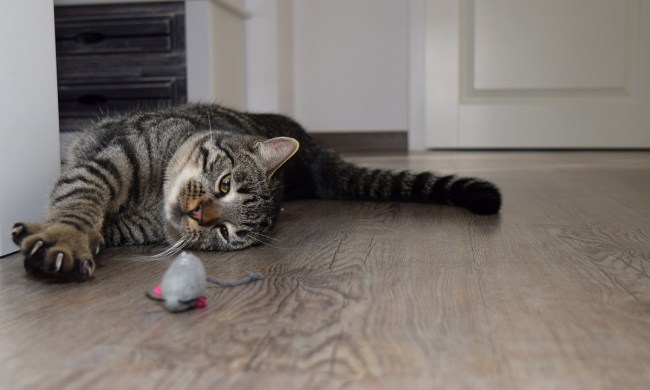If you’re already a cat lover, we probably don’t have to tell you how much these adorable fur babies can brighten your day. According to science, self-defined “cat people” are actually smarter than those who identify as “dog people.” Additionally, pet parents in general are healthier and happier than people who don’t have at least one pet. That said, sometimes your cat can be a real nuisance. From cats who come down with the night crazies to the futility of wearing a chic, all-black outfit, being a cat parent comes with a price. Unfortunately, that price might include your favorite chair. Here’s how you can protect your furniture from cat scratch damage.

Choosing the best furniture for a cat-friendly household
According to Decor Aid’s co-founder and CEO, Sean Juneja, cats are far less likely to claw furniture with recessed legs made from metal or wood. Because cats see the legs of our furniture as scratching posts, recessed legs present a much less attractive target. And unlike some wood that cats can satisfyingly sink their nails into, metal feels slippery beneath their paws, which deters scratching. Juneja also says, “The best fabrics are ultrasuede and leather because a cat cannot claw into these.”
Steer clear of high-maintenance fabrics like tweed, silk, and velvet. Tweed is easy for cats to claw, leaving behind unsightly pilling. Silk and velvet both require professional cleaning to maintain, which can cost several hundred dollars a pop. (If the thought of scratched silk isn’t horrific enough, imagine having to pay a professional cleaner around $200 every time your cat coughs up a hairball on the sofa. Yikes!)
The best slipcovers for your furniture
Want to keep your furniture scratch-free without having to go out and buy a new sofa? We have some good news. Say farewell to the ugly, shapeless slipcovers of the past. Modern slipcovers are stylish and protective, so you can keep your furniture safe from harm without breaking the bank. Here are a few of our favorites.
TEWENE Sectional Slipcovers
Protecting your sofa from cat scratch damage can be a challenge, but the task becomes even more daunting when you have a sectional sofa. Never fear — the folks at TEWENE have you covered. (Pun intended.) Available in pale gray, dark gray, and a warm brown aptly named “coffee,” this sectional seat cover comes with two pieces in a variety of sizes from 28 × 28 inches to 36 × 94 inches. Made from a velvety, machine-washable fabric backed with anti-slip silicon, this slipcover set allows you to enjoy the comfort of your sectional without leaving it exposed to your cat’s razor-sharp claws.

Navaris Natural Sisal Furniture Protector
Many cats target the arms of sofas and chairs when they fall into a scratching frenzy. If your fur baby leaves the back and seat untouched, these arm covers may be your best option. Made from natural sisal, they will keep your cat’s claws away from her target without covering up your entire sofa. Our only complaint with this option? You have to buy each arm cover separately, but that can also be a bonus if you have a one-armed sofa or chair.
YEMYHOM 3-Cushion Sofa Slipcover
For some feisty felines, every inch of exposed fabric is a target. If your fur baby loves to claw your sofa to shreds, this full-coverage slipcover is a household essential. Available in sizes Small through X-Large, this slipcover is machine washable and comes with anti-slip rods to keep the overall look neat and clean rather than shapeless. Worried the slipcover won’t complement your design scheme? You’re in luck — this slipcover comes in an impressive 27 colors and patterns, so you’re sure to find a perfect match for your space. Even better, the polyester microfiber and spandex blend feels so buttery soft you might prefer it to your sofa’s original fabric.
Easy-Going Recliner Slipcover
If you’ve ever tried to find a recliner slipcover in the past, you know options were severely limited. Fortunately, times have changed. This recliner slipcover comes in 11 different colors, and the blend of 80% polyester and 20% spandex has enough stretch that you won’t have to struggle when you cover your chair. One caveat is the sizing: if your chair’s seat is smaller than 23 inches or larger than 35 inches wide, you’ll have to find another slipcover. However, not many people will run into that problem with this one-size-fits-most option.

Tired of your cat shredding your furniture to ribbons, but hate the look of those plastic slipcovers your grandma had in her house? Now you can have the best of both worlds. With our top picks, you’re sure to find a stylish, washable slipcover that protects your furniture without sacrificing the look of your home.



